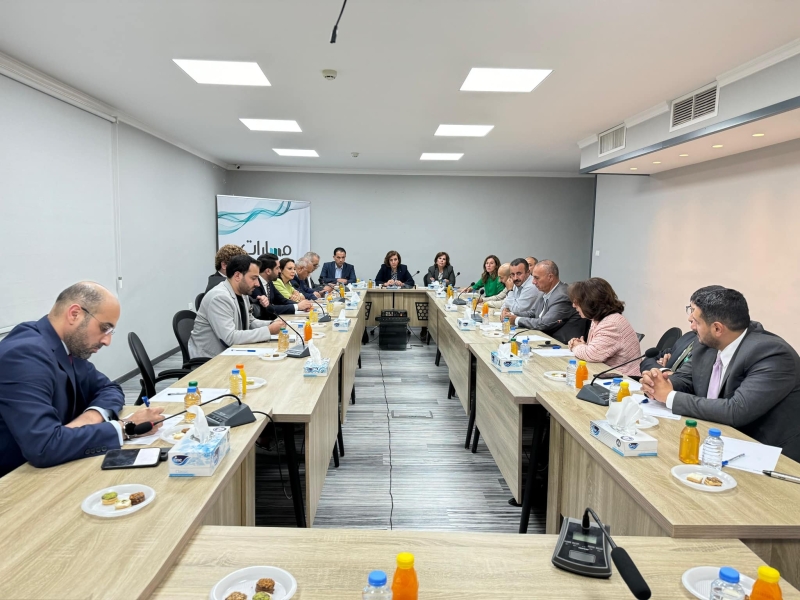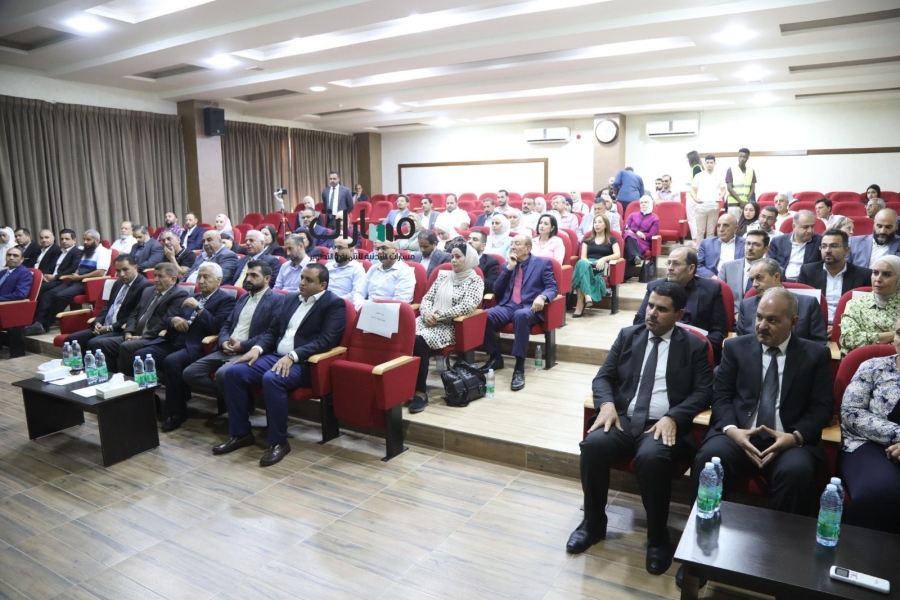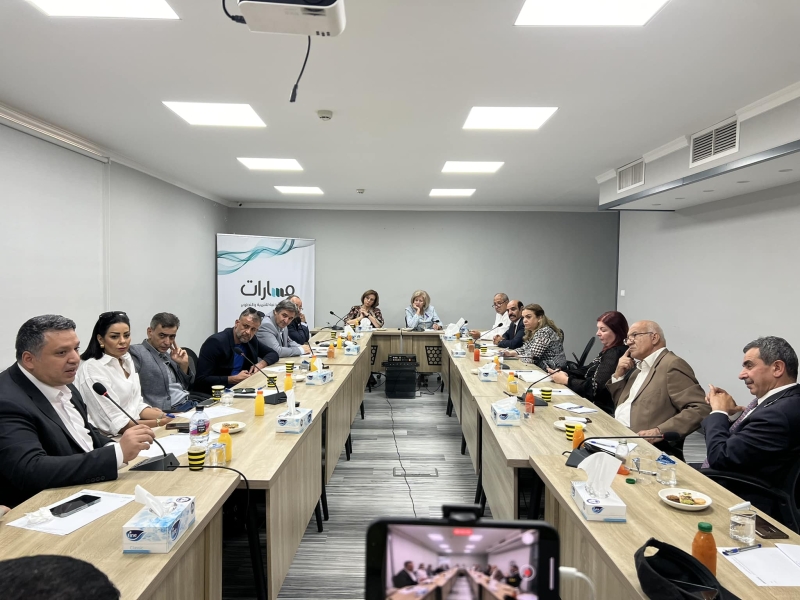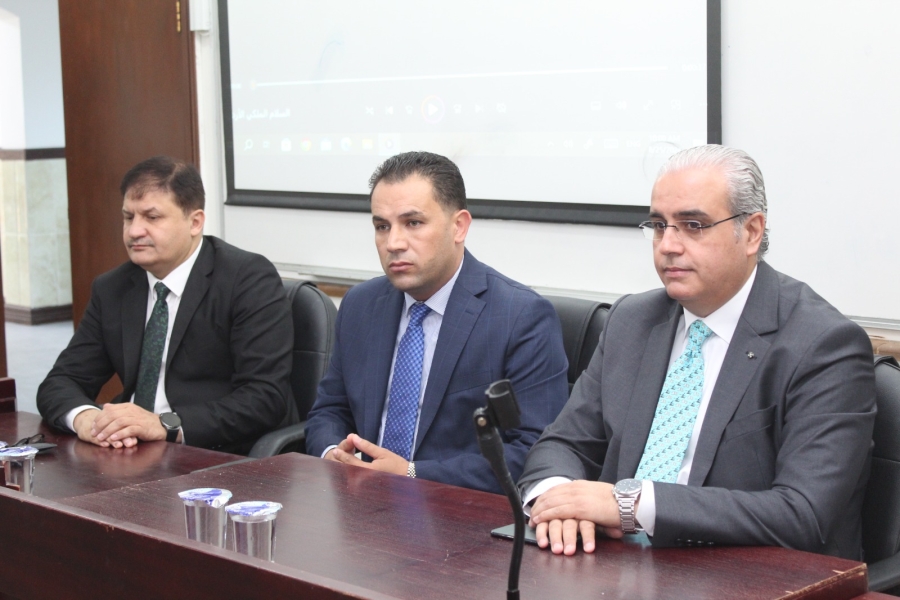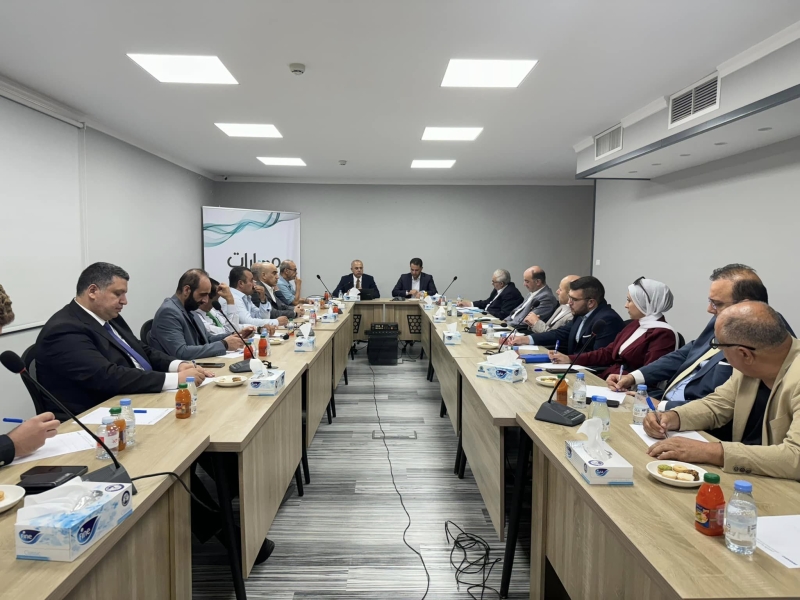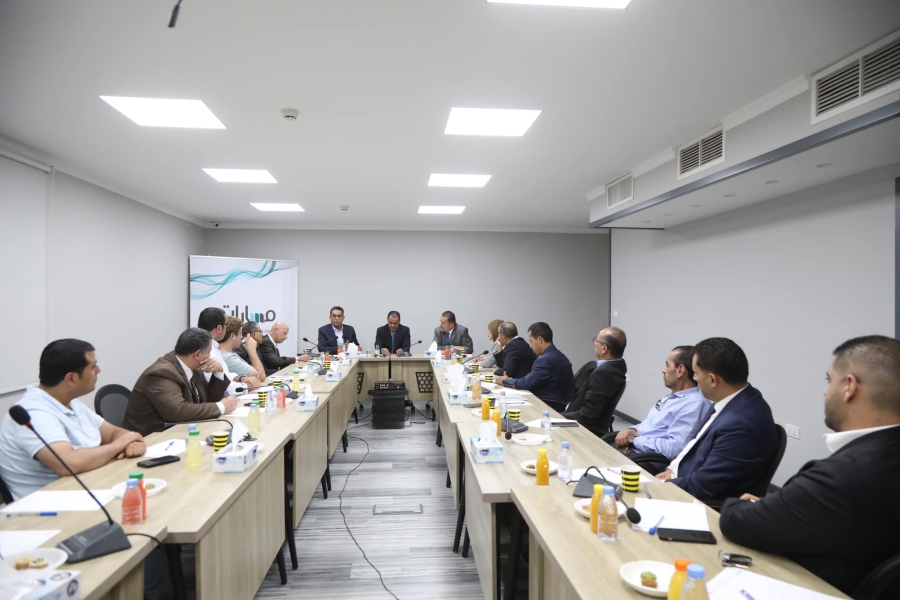The Role of Parties in Promoting Electoral Participation
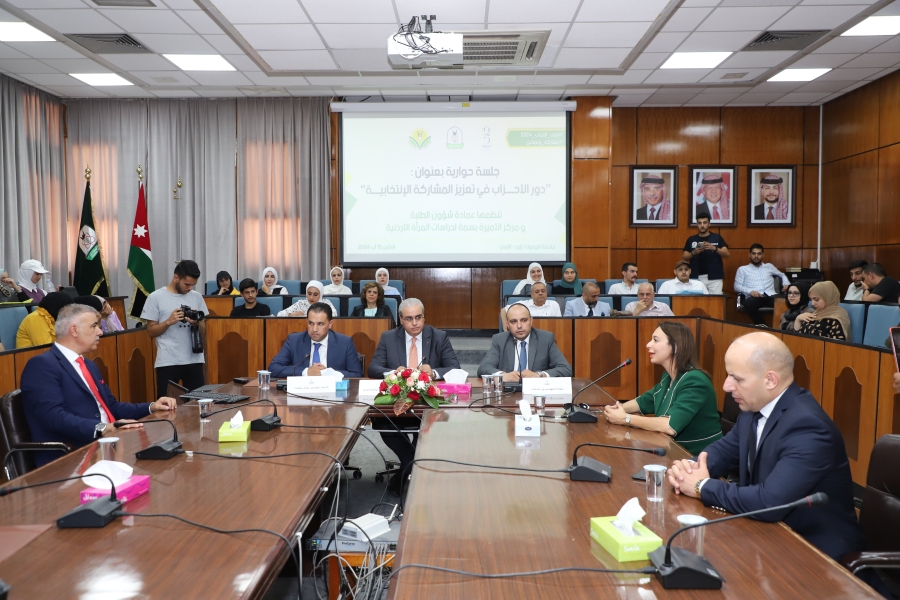
Yarmouk University Hosts a Student Dialogue Session on "The Role of Political Parties in Enhancing Electoral Participation"
Yarmouk University, through its Deanship of Student Affairs and the Princess Basma Center for Jordanian Women's Studies, organized a student dialogue session in the round hall of the Conferences and Seminars Building. The session, titled "The Role of Political Parties in Enhancing Electoral Participation," featured contributions from Senator Dr. Ibrahim Al-Bdour, Engineer Yazan Shdeifat, and Masarat Executive Director Talal Ghneimat.
The session began with the discussion of several ideas praising the Royal Committee for the Modernization of the Political System for its pioneering national role in laying the foundations for Jordan's political modernization. The dialogue also addressed the complementary roles of clans as social tools with political influence and political parties as institutional players. A key focus was what university students should know about the role of political parties in the political process and, more specifically, in the upcoming elections.
He noted that, in the absence of an Arab collective project, there is a need for a purely Jordanian initiative through political engagement and the upcoming parliament. He stressed that the House of Representatives organizes and oversees political life through its legislative role, which involves enacting laws and regulations and determining public policies as the voice of the people. Consequently, any political reform must pass through the House of Representatives.
Dr. Al-Bdour highlighted the foundational role played by the "Political Modernization Committee" through the drafting of the new political parties and electoral laws. He stated that these reforms have changed the stereotypical image of elections by empowering youth and women, emphasizing that political parties must present practical ideas and programs aimed at developing society—a goal achievable only through collective action within the House of Representatives.
He stressed the importance of university students participating in extracurricular activities, workshops, and training courses to refine their personalities, enhance their skills, and build their capacities to become a generation capable of conducting dialogue, defending viewpoints, expressing opinions, and accepting differing views.
Shdeifat noted that the "Political Modernization Committee" was established to achieve political reform rooted in popular participation. He highlighted the immediate priority of increasing electoral participation and becoming familiar with political parties and their programs.
He pointed out that 41 parliamentary seats in the upcoming elections are allocated to political parties. Therefore, it is essential for political parties to promote their programs to increase voter turnout.
Ghneimat argued that the reforms introduced by the "Political Modernization Committee," including lowering the candidacy age and enhancing youth participation, could play a significant role in the success of the electoral process. He highlighted that Jordanian society, being predominantly youthful, requires a clear and active role in shaping its future.

